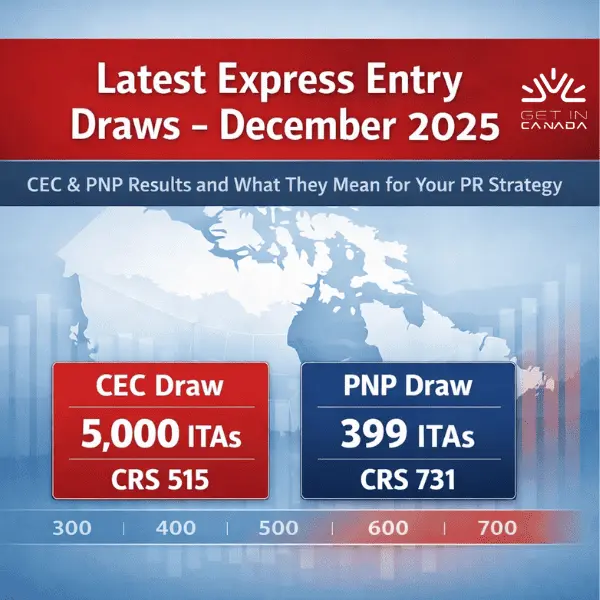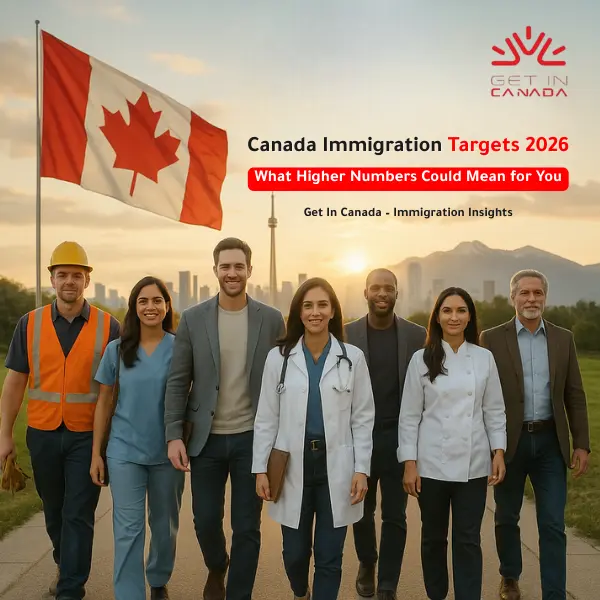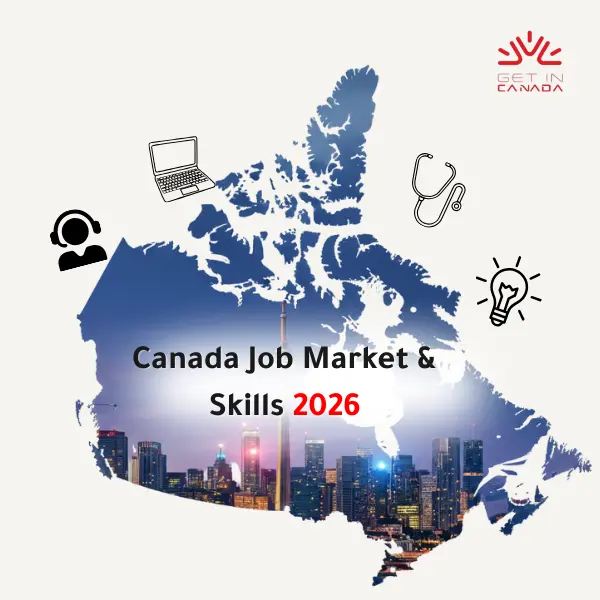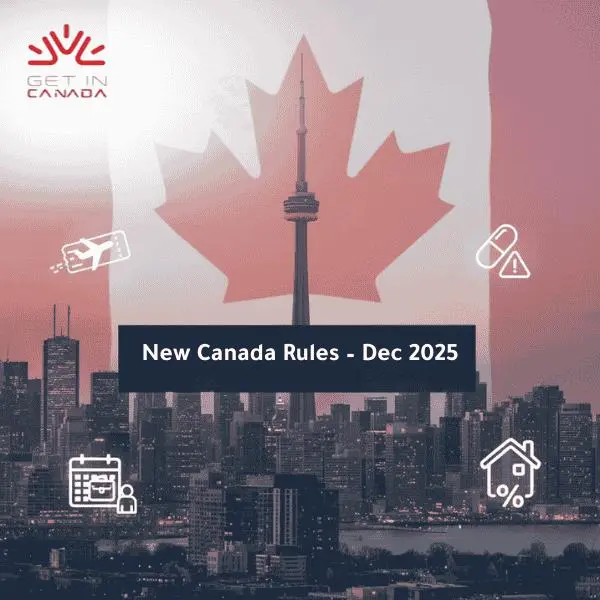Canada Announces 3 Big Changes to Immigration Policies
On December 17, 2024, Marc Miller, the Minister of Immigration, Refugees, and Citizenship, shared new immigration updates. This would benefit the immigration system by boosting service with productivity, fairness, and protection, fixing the problems at the U.S.-Canada border, and stopping fraud.

Three major updates on the immigration system
Here’s a quick look at these three main changes:
1. Stopping the flagpoling practice
Let’s discuss this change:
What does flagpoling mean?
“Flagpoling” refers to when a temporary resident briefly exits Canada and plans to come back through a port of entry to speed up the processing of an immigration application.
Such applications may include an updated work permit or verification of permanent residence.
Why is it being stopped?
Though this may be a time-saving effort for the applicants, it creates issues for border officials. These include:
- Wasting Resources: Border officers waste more time in handling these cases.
- Traffic Issues: It contributes to extended border-waiting times.
- Delaying Other Work: Important activities, such as checking against illegal activities, are disrupted.
The New Process
Temporary residents will now be able to apply online to renew or extend their status instead of visiting a border crossing.
Benefits of this Change
- Frees up resources for higher-value work.
- Unnecessary traffic at the border is reduced.
- Makes the process easier and more efficient for applicants.
By stopping flagpoling, Canada can focus on managing borders more effectively and improving services for everyone.
Find out if you are eligible to get in Canada →
2. Stronger Rules to Prevent Immigration Fraud
Canada focuses on preventing fraud, and in the following, we’ll discuss more:
Why is this change needed?
What the Canadian government wants is to protect its immigration system from fraud and security risks. It proposes amendments to the Immigration and Refugee Protection Act for this purpose.
What will change?
The government will now have the authority to:
- Withdraw, suspend, or amend immigration documents (like visas) upon detection of fraud or security risks.
- Pause or stop accepting applications if there is a large-scale fraud attempt or a public safety concern.
What does this mean?
These updates will help stop people from:
- Wasting resources meant for genuine applicants.
- Using fake documents or false information to get visas.
- Exploiting Canada’s immigration system.
How does this help?
These rules will ensure that only qualified people benefit from immigration programs. They also protect Canada’s system from being misused.
3. Changes to the Express Entry System
The Express Entry system is known to make applicants earn extra points when their job offer is supported by a Labour Market Impact Assessment (LMIA). But now the government will remove extra points for LMIA-based job offers in the Express Entry system. However, some people misuse this process by creating fake job offers to boost their chances of being selected for permanent residency.
Why is this important?
This makes a difference for several reasons:
- Building Trust: It will make the system more interpretable and trustworthy.
- Prevents Fraud: It would stop fake job-offer scams.
- More Fair: Workers with actual skills have a better chance of getting cut.
Other Important Updates
Canada has announced more important updates, which are:
Managing Irregular Migration
Canada is also working to reduce illegal border crossings. Under the Safe Third Country Agreement (STCA), asylum seekers must apply for refugee status in the first safe country they arrive in, either Canada or the U.S.
Expanding the Safe Third Country Agreement (STCA)
In March 2023, the arrangement expanded to include all land and water borders, including those in the Great Lakes. And this already portends quite significant changes:
- Illegal Border Crossings: The number of illegal entries into Canada dropped from 165 per day in March 2023 to just 12 per day.
- Mexican Asylum Claims: After Canada introduced partial visa requirements for Mexican nationals in February 2024, asylum claims from Mexican citizens dropped by 92%.
Working with the U.S.
To strengthen border security, Canada is working closely with the United States. Some joint efforts include:
- Share information to monitor risks more efficiently.
- Enhanced eTA systems.
- A North American Joint Strike Force to deter organized crime and illegal cross-border activity.
Above all, Canada will be creating three new regional hubs where law enforcement agencies will collaborate in combating crime and drug trafficking.
Why These Changes Matter
The government has seen the following outcomes through the new immigration policies:
- Mexican asylum claims: 97% decline under new visa requirements.
- Fewer Illegal Crossings
- Visa Refusals: Countries with high levels of visa abuse now face a refusal rate of 61%.
These results show that Canada’s new policies are working in the right direction to cut fraud, save resources, and ensure migration is safe and orderly.
These shifts are huge steps in the right direction for Canada’s immigration system. When the government puts an end to flagpoling and fraud prevention and improves fairness in Express Entry, it will be able to have a system that is fair for everyone.
Marc Miller emphasized that Canada will continue to welcome immigrants while keeping the process fair and secure. These changes protect not only Canada’s immigration programs but also its relationships with friends in the international community, including the United States.
That means that Canada will remain one of the most attractive destinations to come to for a skilled worker or new immigrant, but this reform will keep the integrity of the system going into the future.











